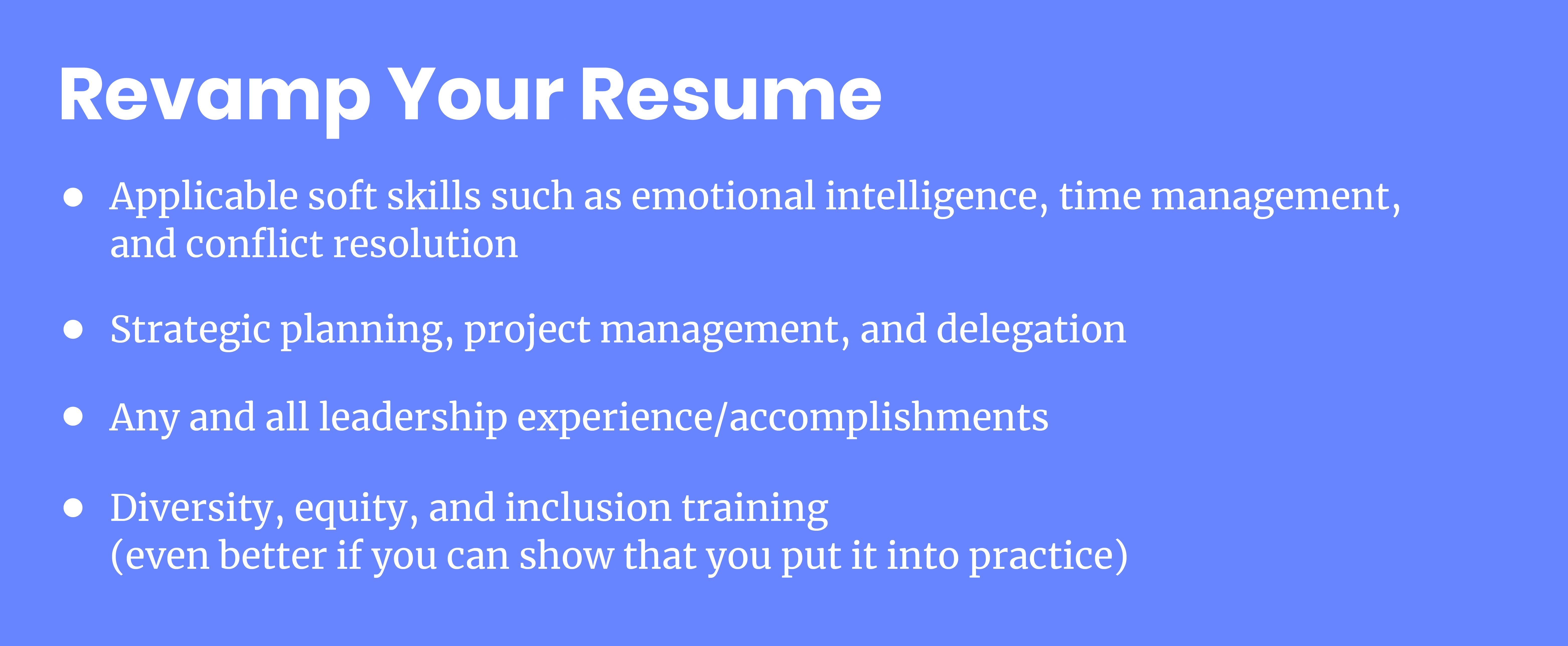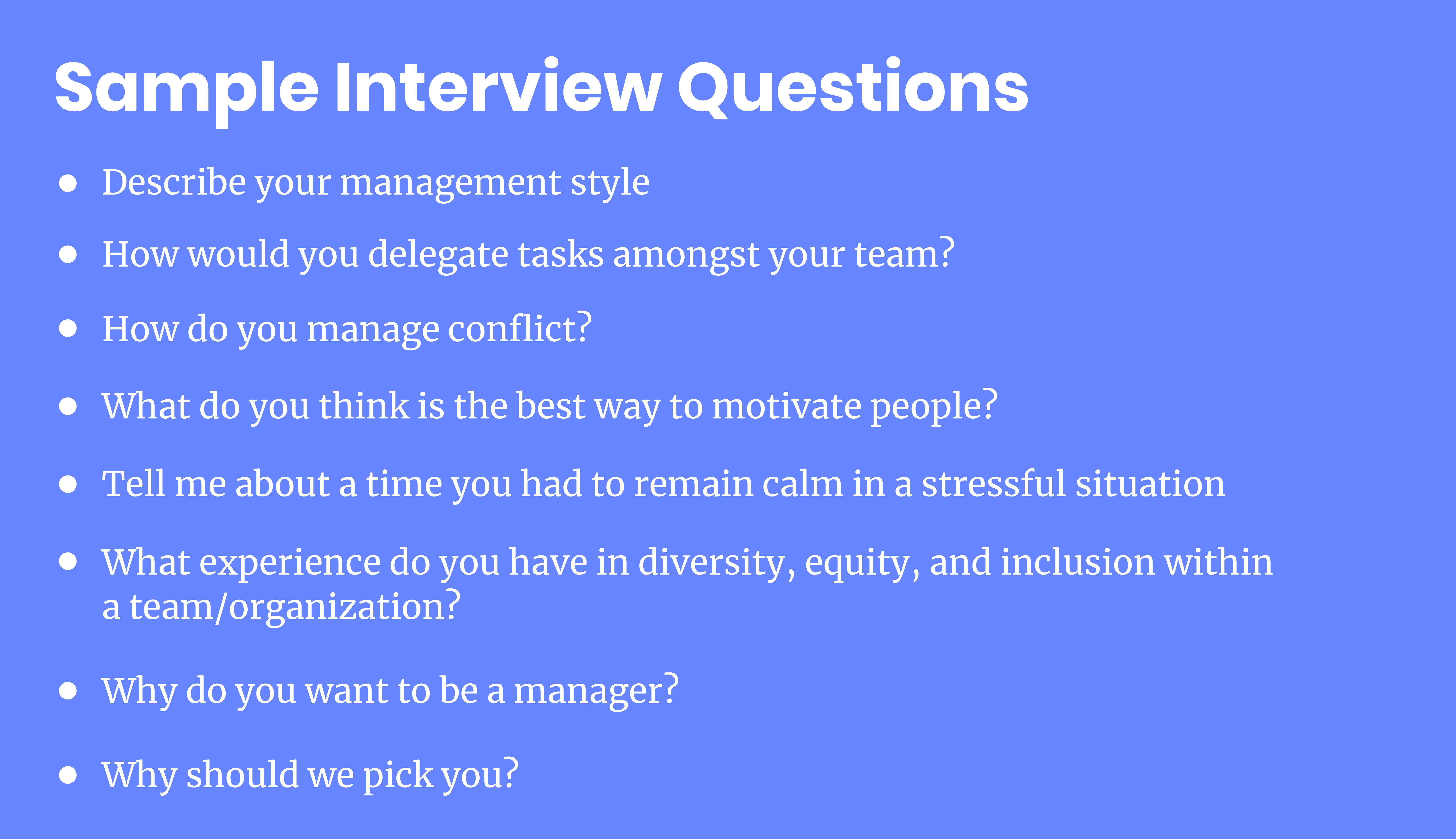You’ve been steadily progressing your career, and now you’re at a point where you’re ready to take the next step and move into a management role. It’s a considerable leap professionally because it’s the gateway to even higher-level jobs. Unfortunately, getting a management role is a big deal because it can be tough to transition into it without prior management experience.
Professionally speaking, this is one of the most frustrating things. How can you get experience in something when no one gives you a chance to gain it in the first place (it’s like those entry-level jobs that want someone with at least five years of experience)? It’s a wonder anyone can move up in their career. But it’s something that can be done because otherwise, there wouldn’t be any managers out there.
There are two ways you can do this, either by moving up in your current company or by moving to another organization that will give you a chance, and there are arguments for both methods. Regardless of the process, you still have to prove that you possess the skills necessary to be a manager to land the job. Here are some tips to help you get there.
Learn About The Job & Gain Experience
As you progress from entry-level to mid-senior level jobs, your career history and steady accumulation of experience are often enough to prove that you can take on a more advanced role and be successful. After all, you’ve done it before. Although moving up into a manager-level job, this same history only proves that you can do the administrative half of the job, not the leadership. So, long before you start applying to manager-level employment, you will need to get creative and find ways to gain some leadership experience to, eventually, prove that you can be successful in both parts of the role.
Study the managers around you. Start taking notice of what your manager and some of the other managers in your organization do regularly. What do successful managers do that stand out? Likewise, what are the weaker managers doing that could be hindering their success? If you’re in a supportive environment, don’t be afraid to ask your manager (or another manager) if they’d be willing to teach you a little more about their role and how they do things. Then, take all of your notes and observations and use them to create a profile of what a successful manager looks like.
Take some skills development courses. Continuing education classes aren’t always the most exciting things to sit through. But a good plan can truly help you develop some of the soft skills needed to be a successful leader. Not only will you gain some new insights and knowledge, but by taking these classes, you’ll show future hiring managers that you’re serious about moving into a leadership role and that you’re willing to take the initiative to get there.
Serve as lead on some projects and initiatives. Since you won’t have a team of direct reports until you have a management position, you will need to lead some teams, projects, committees, or initiatives instead. These roles can sometimes be tricky because you’re tasked with overseeing your peers, but it’s something you’ll have to get used to if you hope to become a manager, so you should take them seriously. Instead of asking for volunteers, assign tasks based on who will do the job the best to prove your ability to delegate. Treat these leadership roles like they are mini auditions for a management job down the line, and you’ll have legitimate experience before you know it.
Read some books on management. Unfortunately, adding a reading list to your resume won’t do much to give you an edge in your job hunt. Still, diving into some good books on leadership and management will help you learn more about different management styles, conflict resolution and help you get a better overall understanding of what it means to be a manager. You want to confidently be ready when you’re asked a manager-specific question in an interview to show that you know what you’re talking about. If you’re not sure where to start, browse through Amazon’s top-selling management books to see if anything looks interesting to you.
Revamp Your Resume
You always have to tailor your resume to the job you’re applying for, right? The same is valid here. Before you reach the management level, your solo accomplishments, hard skills, and some of your more extensive responsibilities may be worth highlighting. In contrast, now you will want to focus on more soft skills, leadership experience, and team achievements. Here are some things to highlight:
- Applicable soft skills such as emotional intelligence, time management, and conflict resolution
- Strategic planning, project management, and delegation
- Any and all leadership experience/accomplishments
- Diversity, equity, and inclusion training (even better if you can show that you put it into practice)

While your resume should still focus on your professional growth and development, you’ll want to change the lens so that it reads less as a solo performer’s resume. Instead, tailor the resume more like the lead singer’s who understands they are only as good as the people behind them.
The Search, Application, and Interview Process
If you’re happy in your current organization, don’t be afraid to let upper management know that you’re interested in growing professionally in your career because they would probably much rather keep you than have you leave for another company. However, since promotions can take a long time to get and salary negotiations are sometimes more difficult when you stay where you are, it doesn’t hurt to tell people within your network that you’re ready to take this next step in your career.
As you start applying to jobs, make sure you follow best practices like tailoring your resume to the job posting with keywords and including requested supplemental information with your application. If you come across a job you aren’t sure you’re entirely qualified for, apply anyway and leave the “yes” or “no” decision up to someone else.
Once you make it to the interview stage, be prepared for questions about leadership. You will, of course, still get a lot of the standard interview questions about your accomplishments and abilities, but that’s only half of it. The hiring manager will be just as interested in you as an individual contributor as they are in how you can get a team of people to deliver.
Sample Interview Questions
- Describe your management style
- How would you delegate tasks amongst your team?
- How do you manage conflict?
- What do you think is the best way to motivate people?
- Tell me about a time you had to remain calm in a stressful situation
- What experience do you have in diversity, equity, and inclusion within a team/organization?
- Why do you want to be a manager?
- Why should we pick you?
Final Thoughts
Moving up from a mid-level role into a management position is one of the more complex professional transitions. Leadership and collaboration are so important as you move up in your career, and competence in these areas is difficult to prove on paper before you’ve officially led a team. The best way you can overcome this hurdle is by preparing for it well in advance. If you know that you want to move into a management position at some point in your career, start getting leadership experience in whatever way you can as early as possible. It will help you land the job and ensure that you are well prepared for when you do.
Find your next opportunity with The Mom Project
Apply for career opportunities with vetted companies that support work and life integration. From startups to the Fortune 1000, inclusive employers of all sizes use The Mom Project to post job opportunities and find skilled, diverse talent. 
.png)



